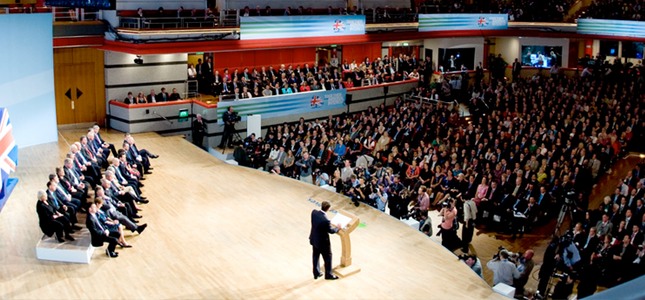
- Cameron has pledged that under a Conservative government after the next election there would be an increase in the 40p income tax limit to £50,000. It’s a pledge that will win a lot of favour from middle-class voters, but with no mention of how they’re going to pay for the cuts there are inevitable questions about whether this will have an impact on the budget deficit or if another area of the budget will need to be cut to pay for it.
- If you were thinking that the first tax cut promise was a bit typical Conservatives looking after their own, the party followed it up with plans to raise the lower rate of income tax threshold from £10,500 to £12,500 by 2020 in a bid to put something in for the lower income portion of society. Again there will be questions about where the money to pay for the tax cut will come from, and there’s clearly going to be a large proportion of workers that fall outside of the benefit zone of either proposal, so they might be wondering what’s in the Conservative manifesto for them.
- What’s clear is that this is all a part of David Cameron’s bid to instil more ambition into Britain to potentially boost the economy going forward. With more incentive in the proposals for people to work harder, get a higher pagying wage and take home more of it, it looks very much to be an economy boosting tactic, as much as it is about promising tax cuts ahead of a general election. In David Cameron’s own words, the move is intended to support the people who, “do the right thing”.
- If that wasn’t enough, there was also reference to a reduction of National Spending of £25bn in the first two years of a Conservative led parliament following the next general election. It’s left a lot of questions about the plan to balance the books if they’re going to reduce tax revenues from the two measures above, and reduce spending, clearly some portions of the budget will be taking a sizeable hit in the years to come.
- What we do know is that the Conservatives plan to protect NHS budget in the next parliament, so it won’t be healthcare that supports the spending cuts or the tax reductions. This leaves the benefits, defence, legal and police services, local government, transport and infrastructure portions of the budget in the frame and a few questions about using other areas of taxation like National Insurance or VAT to pay for them all.
- Benefits, in particular, looks like one area in which a potential future Conservative led government will attempt to reduce the bill on. George Osbourne, in his speech to the 2014 conference, proposed a two year freeze on benefits that are paid to people of working age, with the exclusion of pensions, disability benefits and maternity pay. It’s proposed worth is a reduction of £3bn per year, so it could be a big part of paying for the tax cuts. It also fits into the “ambition” element of Conservative planning as they attempt to get more and more people into employment and off the benefits cycle.
- To counterbalance that saving, there was also a lot of talk during the conference, and in particular during David Cameron’s speech about taking more action to tackle Islamic State extremists. This is a pretty good indicator that defense spending won’t be reducing significantly in the short term. While this clearly sends a message to extremism and to people of the UK about the plan to retain security integrity, it also potentially leaves police, local government and transport left to foot the bill on spending cuts and tax reductions as all three got little mention during the key speeches.
- Another key point to take into account is that there was yet more talk of there being “English votes for English laws” as more power gets devolved to Scotland, and probably Wales and N. Ireland in the near future. What this means is that for laws that only relate to England, there will be parliamentary votes for MPs that sit on seats within England, Scottish, Welsh and Northern Irish MPs will not be able to vote on them.
- For potential homeowners, the 2014 Conservative Party Conference also pledged to build an additional 100,000 new homes for first time buyers.
- In terms of the EU, the party is clearly moving for a referendum if they get elected again in the 2015 general election. However, that has done little to take the pressure off as questions have been hurling in at them about whether they’d ever back a No vote. During the conference, Cameron’s only addition to the talk about an EU referendum is that he will be focusing on immigration as his biggest battle in the negotiations with the European Union.
- The Conservative Party also promised to withdraw from the European convention on human rights (ECHR) after the next election in favour of a UK specific bill of rights. The main aim of this is to tackle what is sees as immigration limitations in the European convention. David Cameron, home secretary Theresa May and justice secretary Chris Grayling all referred to the proposed transition during their speeches at the conference. The result will be to curb the appeal rights of around 70,000 people that face deportation every year in the UK, bring down the number of grounds on which they could appeal from seventeen to four.


